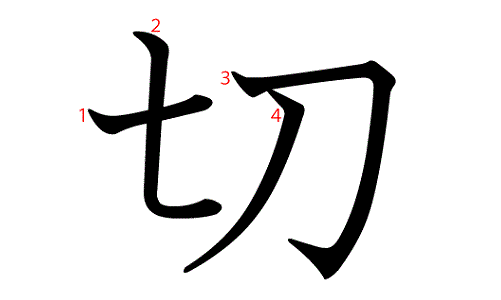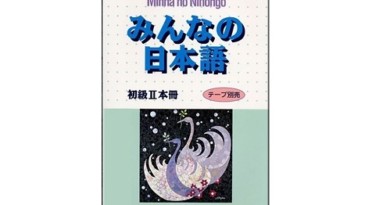Common phrases using the word きる
Common phrases using the word きる (kiru). In Japanese, there are many phrases go with certain words like 足、手、頭、気、身… These words are used very commonly in everyday conversations.
In this article, LearnJapanesedaily would like to introduce to use common phrases using the word きる.
The ones in orange are used very commonly.
Contents
- 1 Common phrases using きる
- 1.1 1. きりかえる :To change the way of thinking or doing something
- 1.2 3. 打ち切る : To drop out, cease.
- 1.3 4. 裏 – 切る : To betray
- 1.4 5. 押しきる : Entitled to your opinion, despite the opposition of others.
- 1.5 6. 思い切る : decided after thinking carefully to the level that there is nothing more to think of
- 1.6 7. 横切る : To cross.
- 1.7 8. 切っても切れない : Unbreakable bond/relationship.
- 1.8 9. 肩かたで風を切る : To strut/ walk arrogantly.
- 1.9 10. 首(くび)を切る : Fired.
- 1.10 11. 手を切る : To end a relationship, break up.
Common phrases using きる
1. きりかえる :To change the way of thinking or doing something
For example:
昨日私は普通預金から当座預金に切り替えた。
きのうわたしは ふつうよきんから とうざよきんに きりかえた。
→ Yesterday, I changed my regular savings account into an account with a checque drawing facility.
2. 切り取る : To cut, crop, split to take (get) it, take things bu cutting or slitting
For example:
漫画の映像を切り取っています。
まんがのえいぞうをきりとっています。
3. 打ち切る : To drop out, cease.
あまり売れなければ、このみせをうちきるつもりです。
4. 裏 – 切る : To betray
For example:
彼は何度も仲間を裏切ったよ。
かれはなんどもなかまをうらぎったよ。
→ He has betrayed his friends over and over again.
5. 押しきる : Entitled to your opinion, despite the opposition of others.
For example:
彼女はご両親の反対を押し切って、彼と結婚してしまった。
かのじょはごりょうしんのはんたいをおしきって、かれとけっこんしてしまった。
→ Despite the opposition of her parents, she still decided too marry him.
6. 思い切る : decided after thinking carefully to the level that there is nothing more to think of
For example:
もう、そうと思い切ることにしました。
もう、そうとおもいきることにしました。
→ I decided that must be it (nothing more needed to thing about that.
7. 横切る : To cross.
For example:
泳いで川を横切った。
およいでかわをよこきった。
→ I swam across the river.
8. 切っても切れない : Unbreakable bond/relationship.
For example:
彼との切っても切れない関係にあっている。
かれとのきってもきれないかんけいにあっている。
→ I’m in an unbreakable relationship with him.
9. 肩かたで風を切る : To strut/ walk arrogantly.
For example:
彼お金持ちなので、肩かたで風を切って歩いている。
かれおかねもちなので、かたでかぜをきってあるいている。
→ He walks snobbishly because he is wealthy.
10. 首(くび)を切る : Fired.
For example:
彼は何度も会社のルールを違反したので、首を切られた。
かれはなんどもかいしゃのルールをいはんしたので、くびをきられた。
→ Because he has violated company policy many times so he got fired.
11. 手を切る : To end a relationship, break up.
For example:
私はいままで彼らとの関係まだ手を切られません。
わたしはいままでかれらとのかんけいまだてをきられません。
→ Until now, I still can’t break up with them until.
Above are common phrases using きる. Check out other Japanese vocabulary in section: Japanese vocabulary by theme
Good luck on your journey of learning Japanese!
Check out more similar articles on section : Learn Japanese for beginers


